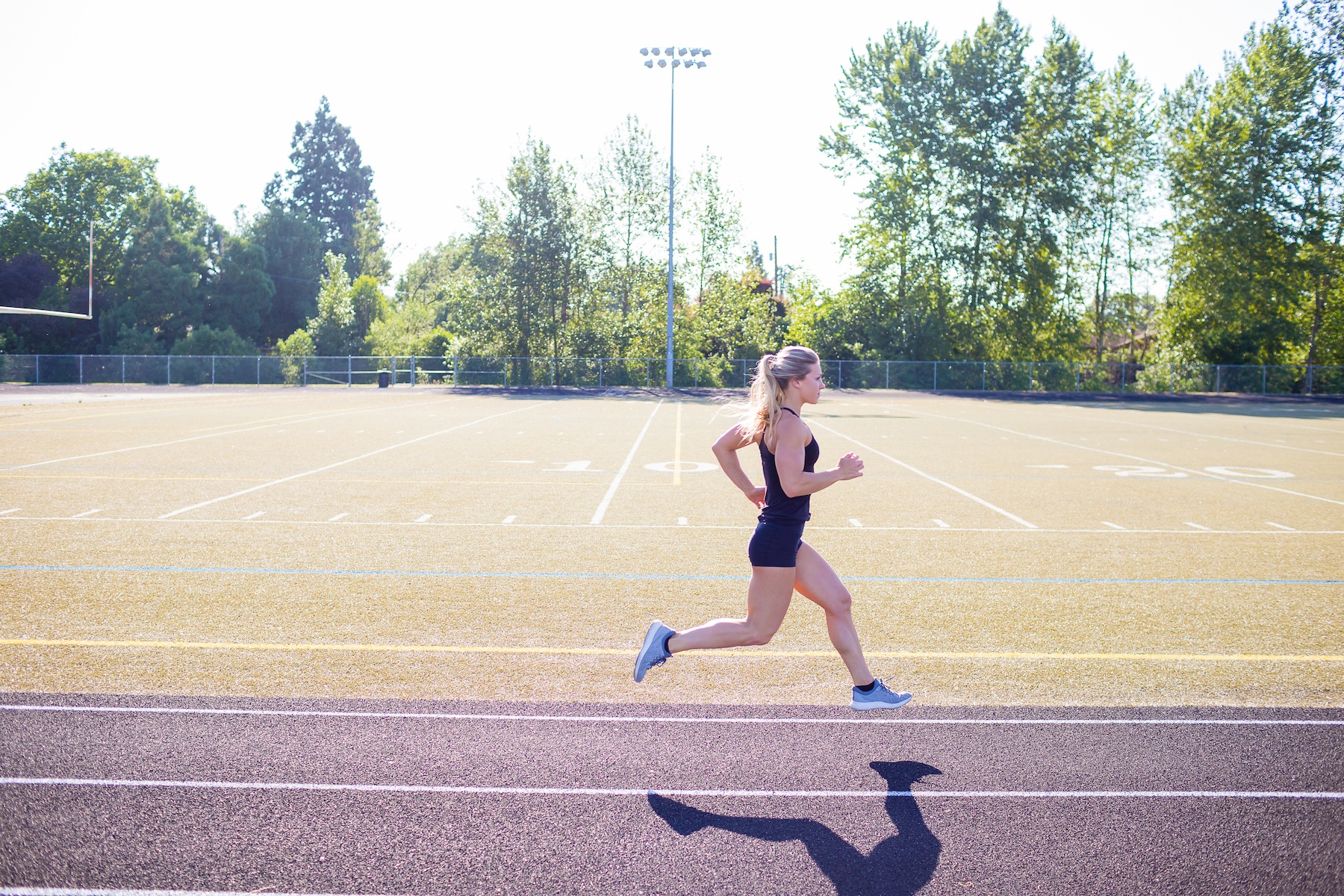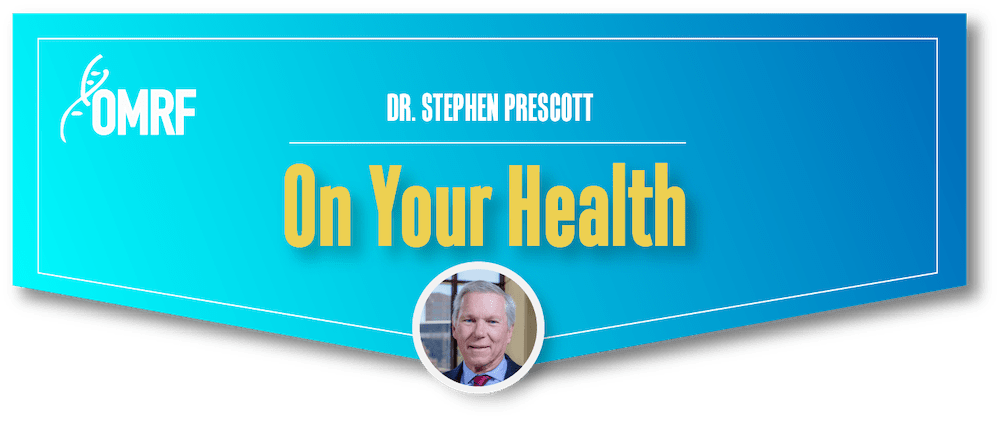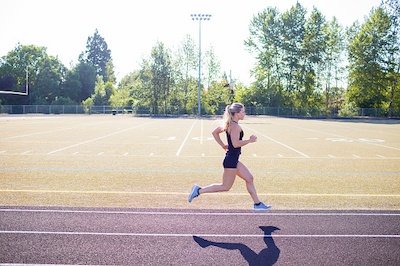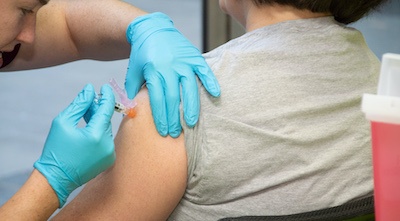In this presidential election year, countless pundits have observed that we are a nation divided. Red and blue. Rural and urban. Haves and have-nots.
But at the Oklahoma Medical Research Foundation, we aim to be uniters, not dividers. We’re searching for ways to bridge gaps and bring people together. Even seemingly irreconcilable ones.
Take, for instance, the exercise chasm.
There are those among us who have planted our flags in the I’ll-expire-before-I-perspire camp. And the pandemic has only cemented things. Why sweat when you could be watching Netflix or having Zoom cocktails with your old college pals? 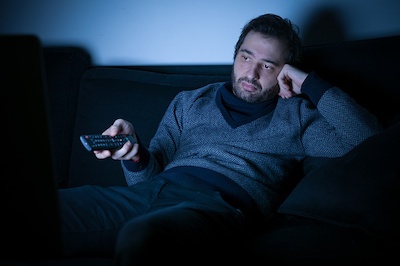
Meanwhile, the treadmill-and-dumbbell set has seized on this moment to double down on their commitment to fitness. You’ve seen them on social media, turning every object in their homes into makeshift workout equipment. When we come out of this thing, they say, we want to be able to bounce a coin off our abs.
(Of course, this ignores the current shortage of pennies, nickels, dimes and quarters. But you get the idea.)
Surely, I thought, we can find some common ground here. Some way to get the would-be gym rats to grab a bag of chips and a cold one. Or to lure the potatoes from their couches.
And then, like a cold Gatorade in between sets, I thought we’d found the magical elixir.
A recent New York Times article touted a pair of new studies under the headline “Exercise May Boost Your Vaccine Response.” According to the story, research in elite athletes suggests “that intense training amplifies our vaccine response, a finding with particular relevance now, as the flu season looms and scientists work to develop a Covid-19 vaccine.”
We all know that exercise is good for us. But in this particularly fraught moment, maybe a finding like this could, at long last, provide the motivation that some of us so sorely lack. Because, according to this piece, exercise might – literally – save our lives.
But before I went dashing up the nearest incline to shout from the hilltops, I headed to OMRF. Specifically, to the lab of Dr. Linda Thompson.
Dr. Thompson, an immunologist, holds the Putnam City Schools Distinguished Chair in Cancer Research at OMRF. She recently secured $1.75 million in research funding from the National Institutes of Health to study immune responses in people who’ve recovered from coronavirus infection. Before that, she led a five-year NIH study of the influenza vaccine at OMRF.
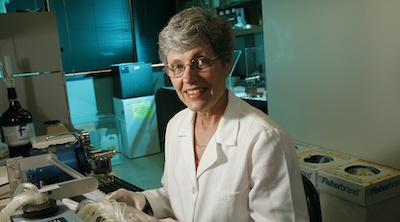
In other words, she knows a lot about the immune system and how it responds to viruses. And – before you lace up your running shoes – she was skeptical of the new studies.
She pointed out that they’d appeared in obscure scientific publications, where the quality of research is often low. “If they were in reputable immunological journals, I’d pay more attention,” she said. Importantly, the experiments involved only a few dozen elite athletes, who are hardly representative of the population at large.
The studies were based on the influenza vaccine, which, she said, “is very hard to study.” So, “it would be quite hard to prove the hypothesis without a large trial.” That’s why, she said, the current clinical trials of a trio of experimental coronavirus vaccines involve 30,000 people each.
Don’t get Dr. Thompson wrong. She’s a big advocate for fitness; she works out regularly and was eating a healthy snack (almonds) while talking to me. And she pointed out that exercise helps counteract many of the co-morbidities that put people at high risk for severe cases of Covid-19.
“In general,” she said, “staying active, avoiding stress and getting lots of sleep should be helpful” in staying healthy this coming fall and winter. But when it comes to avoiding influenza, “the most important thing is to get the flu shot.”
As for the coronavirus, she’s optimistic scientists will develop a vaccine that generates a robust antibody response. Still, she worries about the downstream logistics necessary to administer shots to hundreds of millions of Americans. “I think the bigger challenge is going to be getting vaccines manufactured, distributed and making policy about who’s going to get them when.”
In the meantime, Dr. Thompson will keep to her exercise regimen. Not because it’s a magic bullet, she said, “but the healthier you are, the better your chances when it comes to just about everything.” Read more: Tips for staying healthy in an unhealthy time
—
Get Dr. Prescott’s column delivered to your inbox each Sunday — sign up here.
